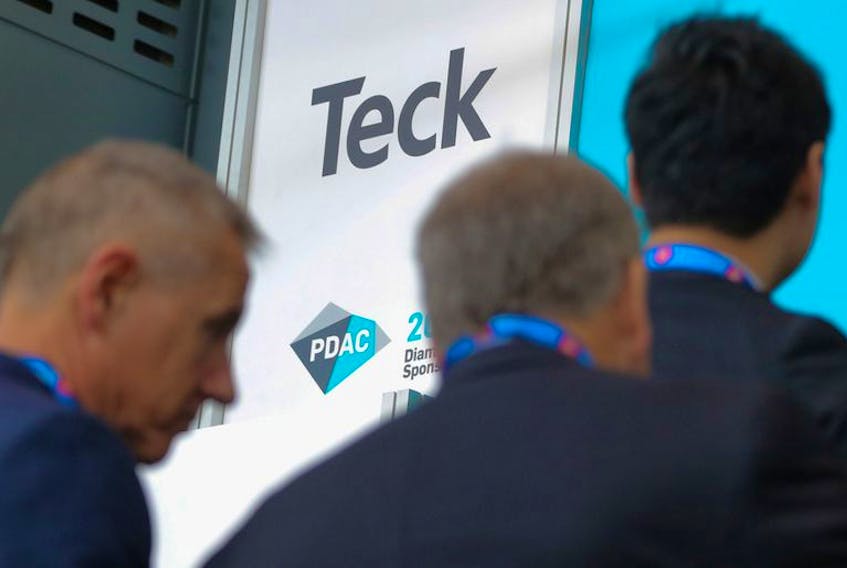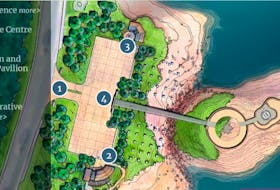Within the next month, the federal Liberal government has to choose its poison.
If it gives the greenlight to Teck's Frontier Mine in the Alberta oilsands it will be exposed as a climate change poser. If it blocks the project it will cement its position as an enemy of Alberta.
Teck Resources Ltd.'s proposed $20.6-billion Frontier oilsands project holds the potential to produce about 3.2 billion barrels of bitumen over the planned 40-year life of the massive open pit mine. Opponents say the mine will dash Canada's hopes of achieving its climate change commitments.
The joint federal-Alberta project review panel reported in July that the mine is likely to result in significant adverse environmental effects to wetlands, old growth forests, and species at risk.
And, while Teck was unable to prove that its proposed mitigation measures will alleviate the project's impact on the environment, the panel recommended the mine's approval based on the “significant economic benefits for the region, Alberta, and Canada.”
The panel conceded that the project “may make it more difficult to achieve Canada's targets and commitments under the Paris Accord,” but Canada's international climate change commitments were beyond the scope and authority of the panel.
Those considerations are very much within the scope and authority of the federal government, which is caught between a climate change rock and an Alberta hard place.
By law, federal Environment Minister Jonathan Wilkinson is required to issue a decision on the project by the end of February. A decision this consequential will go to the entire cabinet first.
Not surprisingly, Alberta Premier Jason Kenney is an unqualified supporter of the mine, the biggest oilsands project ever.
Kenney has called the Frontier project “a wealth bomb ready to detonate,” and said that if the project doesn't get the federal go ahead, “it would be a clear indication that there is no way forward for this country's largest natural resource.”
For Justin Trudeau's minority government the political ramifications of the decision are fraught with peril.
Approval of the project, which would be producing 260,000 barrels a day, long after Trudeau's 2050 deadline for the nation to be “carbon neutral,” will cost him the support of environmentalists. It would also cut into his support among the two-thirds of Canadians who voted in October for a party that promised aggressive action on the climate emergency.
Rejection holds the unpleasant prospect of turning up the heat in the cold war Kenney has been waging against the Trudeau government, and fanning the flames of western alienation if not outright separation.
Proponents of the proposed mine, located about 110 kilometres north of Fort McMurray, point to its promise to create 7,000 jobs during the construction phase, and up to 2,500 jobs during operation. The mine could contribute more than $70 billion to federal, provincial and municipal government coffers and generate 278,190 person-years of direct and indirect employment across the country.
Plus, Teck has achieved agreements with all 14 of the First Nations and Metis communities that will be directly affected by the mining operation and its total “project disturbance area” of almost 300 square kilometres.
Climate change activists say approval of the mine would make achieving Canada's climate targets next to impossible.
And Prime Minister Trudeau's mandate letter to Wilkinson tasked the environment minister to find new GHG reduction measures so that Canada exceeds its 2030 (Paris) emissions reduction goal and achieves net-zero emission by 2050.
Total GHG emissions from the Frontier project are estimated at about 4.1 million tonnes of CO2 equivalent per year, roughly equivalent to putting 1.2 million additional cars on the roads.
Opponents see it as a clearcut decision between making the climate emergency worse or taking a necessary step toward less reliance on GHGemitting fossil fuels.
“Canada needs to choose what path it's going to take,” said Catherine Abreu of the Climate Change Network.
Other environmental groups have said the only way the federal government can live up to its promise of climate leadership is to reject the Frontier mine, and that approving the project in the era of a climate change emergency would be the height of irresponsibility.
The Trudeau government doesn't appear to have an offramp, although there is some speculation it may kick the can down the road and hope Teck decides the project is economically unviable at today's oil prices.
But it is more likely that the federal government will finally have to show its true colours. This seems a clear-cut choice between the economy and Alberta on one hand, and the climate emergency on the other.
RELATED:









